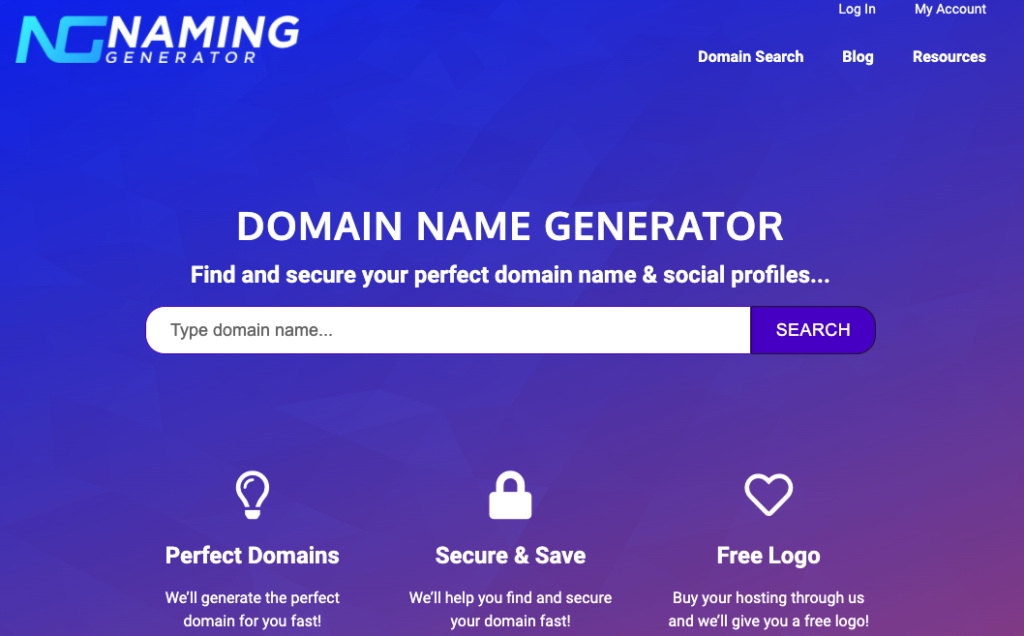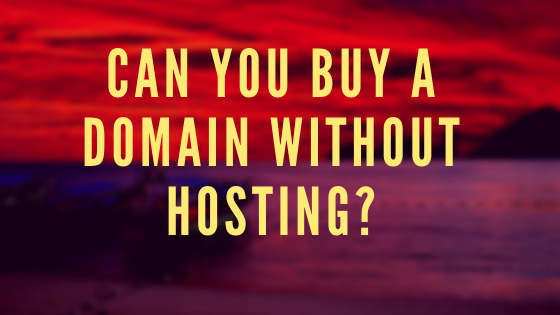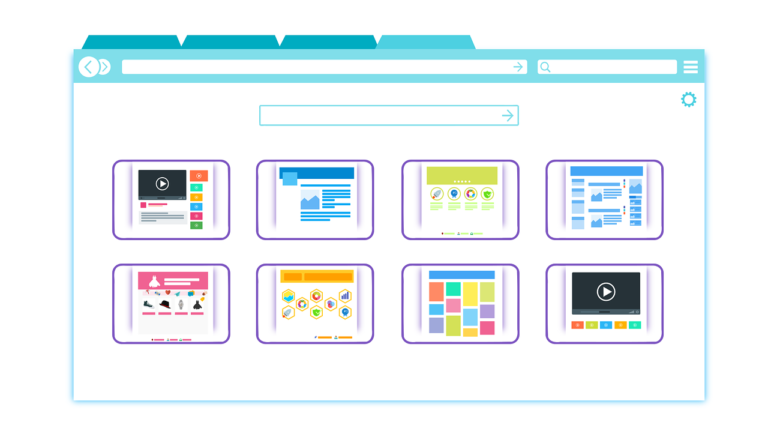Can I Buy a Domain From One Company and Use It at Another Web Host?
The first step in beginning a website is choosing a good business domain name. Step two is getting a web host. But what if your domain registrar and web hosts are different? Did you just waste money paying for these website building essentials? Or is there a workaround?
Can you buy a domain name from one company and use it at another web host? The short answer – Yes. You can purchase a domain name from one company and point it to another web hosting provider. Doing so is all possible since domain names and website hosting plans can be purchased separately, and also if you own both the domain and the hosting plan.
Paying for a domain name from one registrar and then using that domain at another web host may sound complicated. But don’t worry. In this article, we will guide you on the process and answer more relevant questions about domain names, hosting, and website building.
What Is the Difference Between a Domain and Hosting?
Let us clear up the confusion about domain names and web hosting.
First, a domain name is the series of letters, numbers, and hyphens typed in the search bar of a browser and then redirects you to a website or web page. A domain name is unique to each website. It is also called a URL (uniform resource locator).
In contrast, web hosting refers to the service provided by companies (web hosts) where server space is allocated to a specific website. Web hosts allow its users to store, record and manage files relevant to running a website.
Can You Buy a Domain Without Hosting?
Yes, you can purchase a domain without a web host and vice versa. However, with only a domain name, there is no way for you to save and manage the files needed to run a website.
You can still keep the domain name as yours by turning the domain into a parked domain.
Where Do I Buy a Domain? And How Much Does it Cost?
Domain names are sold through domain name registrars. These registrars are accredited by ICANN (Internet Corporation for Assigned Names and Numbers), and they will list your personal information as the owner of the domain in the ICANN registry. A few examples are BlueHost, GoDaddy, NameCheap, DreamHost, FatCoz, and many more.
When buying a domain name, you are essentially paying for the domain registration fee. The yearly fee can be as low as $1 to $20 or more. The domain name registration fee will increase depending on the top-level domain (whether .com, .org, .co.uk, or other country-specific domains), keyword, and whether or not the site has an existing owner.
Where Do I Buy a Web Host? And How Much Does it Cost?
A quick Google search will tell you that there are multiple web hosting providers available today. In fact, most domain name registrars also offer web hosting services, and vice versa. Web hosts typically bill every month, but you can still pay yearly or biennially. Some web hosts even include free domain names.
To save you time searching for the best web hosting provider, feel free to check our web hosting options that can save you money and offer as much as $1,474 in bonuses!
Tips For Buying a Domain
Before you take the plunge of buying a domain, keep in mind these best practices when choosing a suitable domain name:
1. Choose a Short Domain
Shorter domain names are quicker to type and easier to remember. Go for two to three words in your domain name. If you are using your business name as your domain, omit words like Inc, corp, or company.
2. Go for a Brandable Domain
A brandable domain name is a memorable one. Pick a domain name that matches your business image or your personality. You may also choose a domain composed of made-up words that can be distinctly associated with your brand or site.
3. Select a Top-Level Domain
Next, always go for top-level domains like .com, .net, or .org. These are the most popular TLDs, and, often, website visitors trust websites with these top-level domains more.
Also, if you are opening a local online store or an area-specific blog whose target audience are people living in a specific location, you may choose a geographic domain or TLDs like .au, .co.uk, or .kr.
4. Match With Your Website and Business Names
Choose a domain name that matches your website and company names. Doing so is especially important if you want to establish or if you already have a good branding identity for your business.
Matching website URL and website names also make it more convenient for your page visitors to remember. Check out this article for more tips on choosing the best domain name for your business.
How to Point a Domain Name to Another Web Host
Now that you have picked a good domain name and subscribed to a web hosting plan, the next step is to make sure that your domain is pointed to the right web host.
Here are the steps to do that:
1. Find Out Your DNS Servers or Name Servers from Your Web Host
To accomplish this step, you can either ask your web host’s support team or tinker around your web hosting account’s Control Panel.
A name server will look like ns1.domainsample.com, ns2.domainsample.com. Web hosts may have two to three name servers, so make sure to note them down exactly as they were written.
2. Go to Your Domain Registrar Account to Update the Settings
Next, log in to your domain name registrar account. Then, go to the Settings page and look for the Domain Manager option. Click the option to modify or change it and enter the DNS Servers or Name Servers you’ve noted earlier.
Remember that different domain registrars will have different button names and process of changing the DNS servers. To ensure that you are updating the correct setting, you may directly consult your registrar’s Help Page or ask the support team.
And that’s it! When done right, typing your domain name or URL in a browser’s search bar will redirect you to your website.
Now that you’ve learned that purchasing domain names and web hosting plans from different companies is okay, you can finally start building your website (if you haven’t begun yet!). If you need help in choosing a domain name, use of online domain name generator. It’s free.
Related Questions
Can You Buy a Domain Owned by Someone Else?
Yes, you may purchase a domain owned by someone else. But be prepared to pay more for the domain. As of 2019, the most expensive domain name sold was for Voice.com at $30 million.
Can You Buy an Expired Domain Name?
If a registrant or domain owner does not renew a domain after a thirty-day grace period, the domain name will go into an auction for seven (7) days. You may purchase the expired domain during the auction period. Most high-value domains will fetch a large sum during this time.
However, if the expired domain is not sold during the auction period, it is considered either a closeout domain or a dropped domain. In both cases, the domain name is listed back in the Registry.
Does Buying a Domain Name Get You an Email Address?
It depends. When you buy a domain name, some domain registrants offer packages that include free email addresses while some do not.
How Different is Domain Forwarding From Domain Masking?
Domain forwarding and domain masking both are services offered by web hosts and domain registrants. With domain forwarding, anyone entering your domain name on a web browser is redirected to your website. In this service, the entered domain name will change to your website’s domain name or URL. For example, mysampledomain.com may be redirected to mynewdomain.com, and the page visitor will see the new domain name.
In comparison, with domain masking, the originating domain name is retained once the page visitor is redirected to the new website. For example, mysampledomain.com may be redirected to mynewdomain.com, but the page visitor will still see mysampledomain.com as the domain name.
Sources:
https://www.icann.org/resources/pages/what-2012-02-25-en
https://domains.google/learning-center/how-to-come-up-with-a-good-domain-name/








